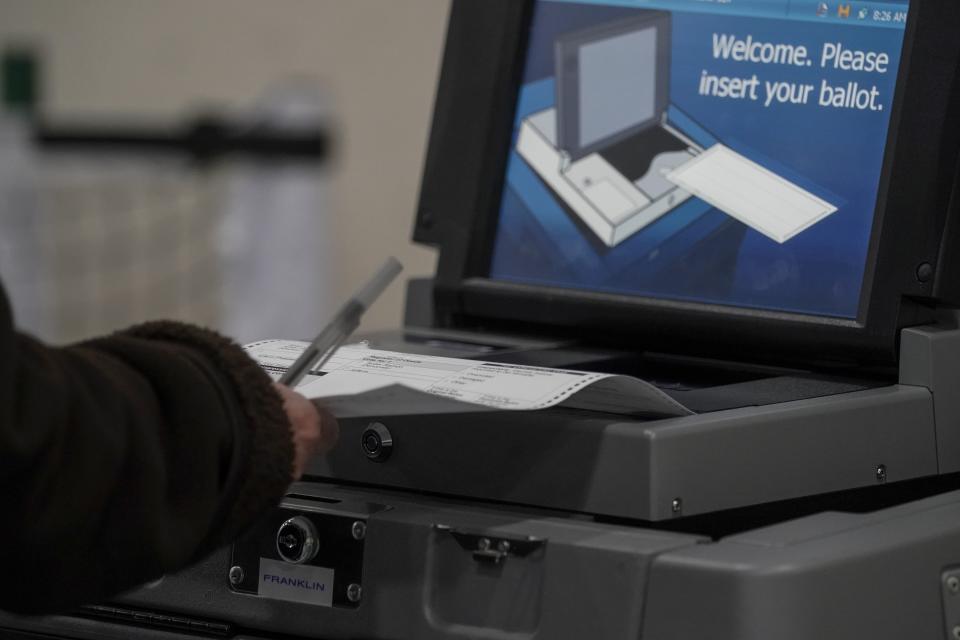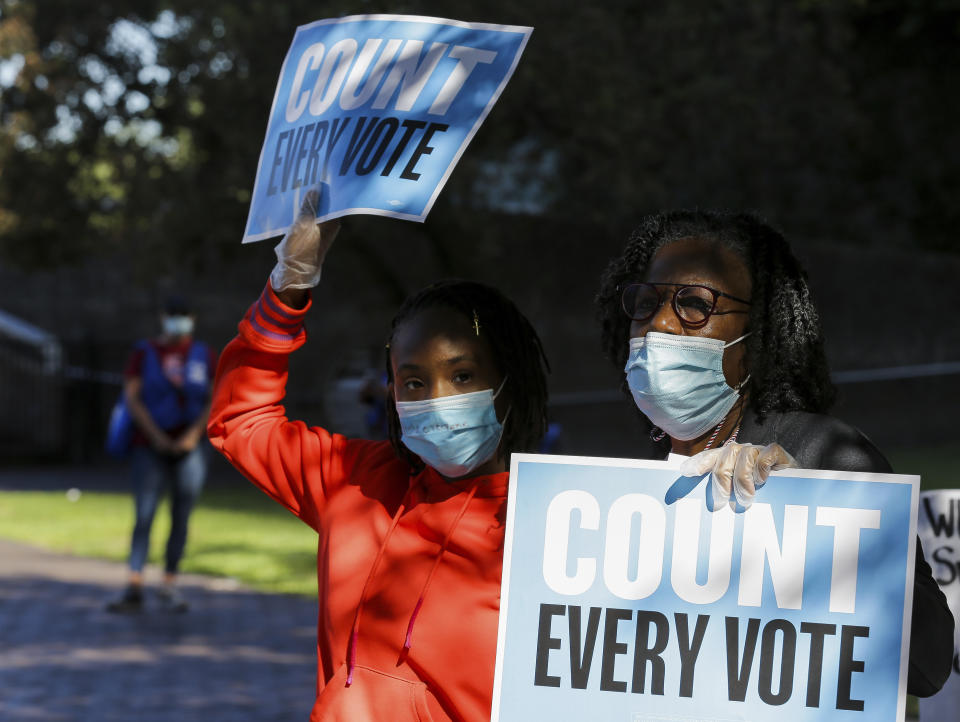'We're not out of the woods yet': Officials say votes have not been compromised by foreign actors, but challenges remain
As voters began to flock to the polls, there were so far no indicators that foreign adversaries had compromised or tampered with voter data, individual votes or voter turnout as over 100 million people have already voted early, senior Department of Homeland Security officials said Tuesday morning.
“We have no indications that a foreign actor has succeeded in compromising or affecting the votes cast in this election,” said Chad Wolf, the acting secretary of homeland security, during a live-streamed press conference a couple of hours after most polls opened.
Wolf was joined by Chris Krebs, the director of the Cybersecurity and Infrastructure Security Agency (CISA), which was created in 2018 to zero in on threats to U.S. critical and digital infrastructure. The agency, part of DHS, was born following widespread Russian interference in the 2016 U.S. presidential election.
Krebs and his team have since created a network used by state, local and federal officials to share information about, monitor, respond to and mitigate any problems, cyber or otherwise, facing elections and critical infrastructure.
“We have seen attempts by foreign actors, Iran and Russia, to attempt to interfere in the 2020 election,” said Krebs, referring to announcements in October made by senior intelligence officials concerning an email spoofing campaign purporting to be from the right-wing group the Proud Boys. “We have addressed those threats quickly, comprehensively and publicly,” said Krebs.
“We’re not out of the woods yet,” he said, noting that there are still many opportunities for foreign actors to deface websites, spread disinformation, disrupt local networks or intimidate voters — all tactics his team has warned state and local officials to be on the lookout for.

According to the senior CISA officials, voting machine outages currently reported in counties in Georgia, Missouri and New York, as well as an e-pollbook failure in Ohio, appear to be the result of “technical challenges” rather than “any kind of malicious cyber activity.”
The officials are already in touch with local officials in each precinct and are aware of robocalls and text messages to voters in Florida and Michigan, confirming that “these sorts of things happen every year” and that law enforcement was already investigating these reports. CISA officials also told reporters they were “not seeing anything that would cause any concern particularly from a disruption of the electoral process perspective.”
“It is very, very rarely a cyber-related incident,” said a senior CISA official. “It’s typically a technology challenge. That’s what’s going on out there.”
Independent cybersecurity experts agreed with the assessments coming from government officials.
“At this point, we are more concerned about adversaries undermining our confidence than altering any outcome, and we are optimistic that they will face an uphill battle doing so,” wrote John Hultquist, the senior director of analysis at the cybersecurity company Mandiant’s threat intelligence unit, in an email to Yahoo News.
In recent weeks, national security and cybersecurity experts have become increasingly confident that foreign adversaries are less of a threat to the security of the election than domestic actors, who are spreading false information or engaged in voter suppression or intimidation efforts.

Domestic voter suppression and intimidation, separate from concerns of foreign influence, remain real concerns across the country. Texas Republicans have aggressively sought to have over 120,000 early ballots thrown out through lawsuits arguing that the drive-through votes are unconstitutional, though the courts so far have rejected that argument. President Trump himself has called for his supporters to show up and “watch” the polls, raising fears of voter intimidation, and he expressed anger on Sunday that reporters had published stories about the FBI investigating an incident in which a caravan of Trump supporters swarmed and intimidated a bus of Biden campaign staffers.
However, despite challenges, a record-setting number of Americans — over 100 million — voted early, giving security officials a chance to mitigate concerns and challenges early rather than dealing with a surge of challenges on Election Day alone.
By showing up in droves to vote early, said Krebs during the press conference, it’s clear that “the American people have confidence in the security of their votes.”
_____
Read more from Yahoo News:

 Yahoo Finance
Yahoo Finance 

